Almost from the early church’s start with Stephen’s stoning, Christians have been dying for their beliefs. Church father Tertullian went as far as to say, “The blood of the martyrs is the seed of the church.” Seeing Christians dying for their beliefs can show non-Christians what God they serve… and remind the church of the cost of following Christ. The good work that got martyrs in trouble can have other surprising effects—convicting Christians who have become apathetic, making them consider what it means to serve God.
Therefore, as hard as it is to listen to stories about martyrdom, watching movies about martyrs can be an important educational activity. The following movies depict martyrs from different denominations and periods, some killed by authorities claiming to be Christians themselves. Their stories challenge, inspire, and educate us about what it means to believe that to die for Christ is gain (Philippians 1:21).
Photo Credit: Getty Images/Zeferly
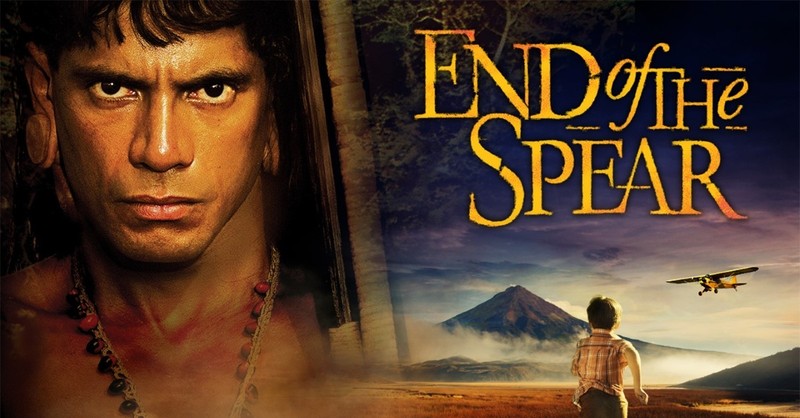
1. End of the Spear
Rating: PG-13
In 1955, five American missionaries (Jim Elliot, Nate Saint, Ed McCully, Roger Youdian, and Peter Fleming) came to Ecuador to minister to the Waodani, one of the area’s most violent indigenous groups. In January 1956, all five died on the beach from a surprise morning attack. Later, Elliot’s widow Elisabeth and Saint’s sister Rachel moved into the area, ministering to the people who had killed their loved ones. End of the Spear tells the surprising story of how these women brought forgiveness and how the Waodoni came to faith.
The movie may be more about the aftermath of martyrdom, but that fact makes it a thought-provoking film. So many martyr stories emphasize the sacrifice but not what happened to the families afterward. End of the Spear highlights that while many followers die for their faith, God’s work must continue. Radical forgiveness to those who least deserve it can be the greatest proof that Christianity gives what nothing else can give.
Photo Credit: Revelation Media
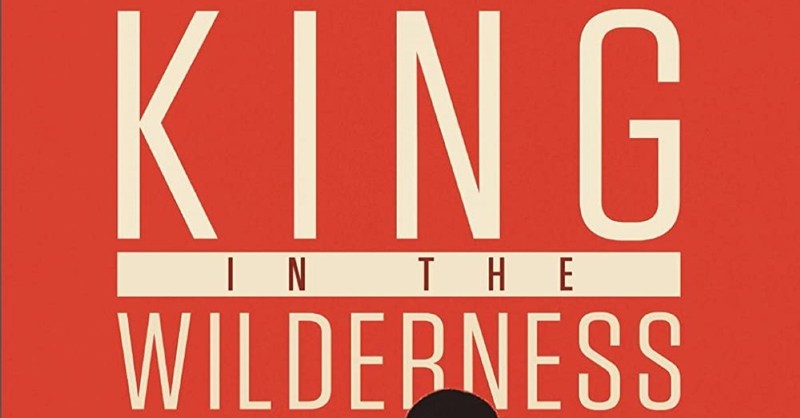
2. King in the Wilderness
Rating: TV-14
Martin Luther King, Jr. may not have been killed while handing out gospel pamphlets, but he died standing for an essentially Christian cause: the end of racism. King and many other Civil Rights leaders declared their fight was an essentially Christian fight to promote God’s value for human beings of all races and ethnicities. For that reason, King is one of the twentieth-century martyrs commemorated in Westminster Abbey.
There are several excellent documentaries and films about King’s life and legacy. King in the Wilderness is particularly worth watching because it shows the part of his life most people don’t remember. King’s last three years (after his famous achievements like the March on Washington) proved difficult. He had achieved some key successes but struggled to realize new goals (like mobilizing Christians and the government to combat poverty). The Vietnam War put him at odds with people who had previously supported him. King in the Wilderness shows these challenges, highlighting King as a human who didn’t always feel heroic. Sometimes he struggled just to keep going. An important look at how serving God can be a long road filled with disappointments, not grand and dramatic.
Photo Credit: Kunhardt Films/HBO Max
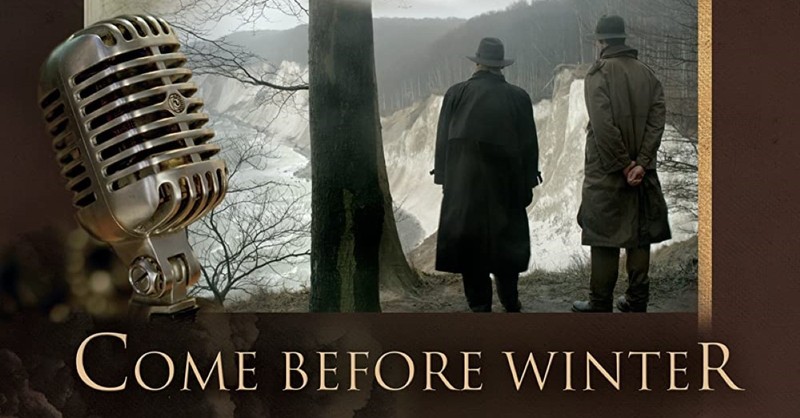
3. Come Before Winter
Rating: TV-14
There aren’t many martyrs in recent years who have attracted the level of fame or sympathy of Dietrich Bonhoeffer. A theologian by training, he got in trouble with the Nazi regime almost as soon as it took power. He gave a radio broadcast two days after Hitler became Germany’s chancellor, warning people not to idolize their leader. Later, Bonhoeffer would become involved in German underground efforts to smuggle Jews out of the country and be executed for his involvement in a Hitler assassination plot.
Come Before Winter takes an intriguing approach to Bonhoeffer’s life: it starts by talking about someone else and their response to his sacrifice. Sefton Delmer ran a “black propaganda” radio station that sent subversive messages into Germany. The movie shows Delmer learning about Bonhoeffer’s work, wondering what faith it takes to do such things. In between scenes of Delmer and his radio team, the movie shows Bonhoeffer’s last days (imprisonment in a concentration camp, his time with other prisoners, his trial, and his execution). The combination of the two stories makes for an entertaining movie about World War II resistance work and a fascinating meditation on sacrifice.
Photo Credit: Stories That Glow Collectors
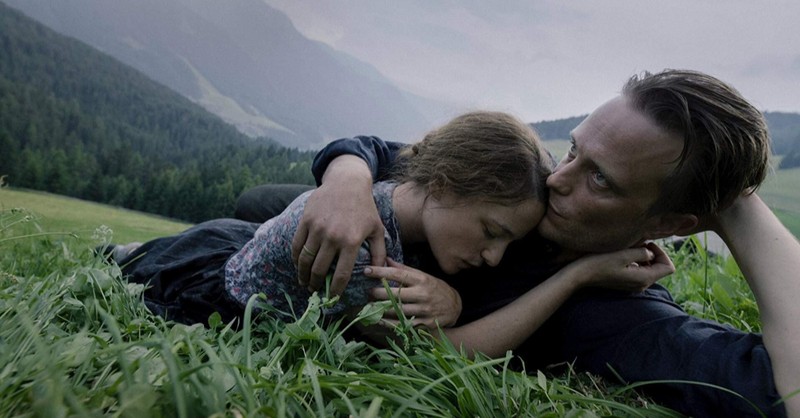
4. A Hidden Life
Rating: PG-13
Documentaries like Come Before Winter tell sensational stories about underground resistance, assassination fronts, and subterfuge. A Hidden Life tells the story of a subtler, lonelier form of Christian resistance. Farmer Franz Jägerstätter lives in Austria with his wife and three daughters. When the Germans take over Austria, he realizes that he may be drafted and military service will require him to swear allegiance to Hitler. Jägerstätter’s neighbors either see joining the German army as part of serving their country or simply the thing everyone must do to avoid getting in trouble. Only his wife understands when he refuses to sign the oath or promote local war efforts.
A Hidden Life doesn’t use much dialogue, but its visuals (Jägerstätter’s neighbors looking at him resentfully, people stealing from his fields) show how he slowly becomes a pariah. The few conversations that do happen—like one of the locals agreeing with Jägerstätter that they can’t “swear allegiance to the Antichrist”—highlight the religious convictions keeping him back. When the movie moves to show Jägerstätter’s time in prison for sedition, and it’s made clear that he will be executed if he doesn’t comply, his faith undergoes new challenges. The movie doesn’t make those challenges seem easy but it doesn’t give in gory details either. First and foremost, this movie is about Jägerstätter’s resolve to serve God over evil.
Photo Credit: Focus Features
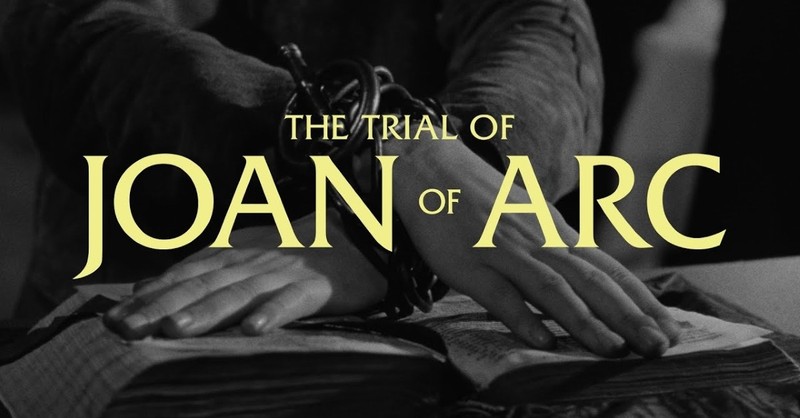
5. The Trial of Joan of Arc
Rating: TV-14
Joan of Arc continues to be one of Christian history’s most iconic women. While different traditions may debate her miracles and visions, the story of her trial and execution represents perhaps the saddest form of martyrdom. She was killed for serving God by religious authorities who claimed to serve God. Several famous films have been made about her story, most famously the silent film The Passion of Joan of Arc. Robert Bresson’s film The Trail of Joan of Arc is a shorter, more restrained movie that emphasizes the injustice of her condemnation.
Like A Man Escaped and other Bresson movies, the acting is subtle and the camera doesn’t move around much. The simple style means there are no moments making Joan’s pain voyeuristic—even a scene referencing Joan being put on a rack to get a confession is played subtly with nothing shown. Instead of melodrama, this movie focuses on dialogue (mostly taken directly from court documents). The judges ask Joan questions that will give them any excuse to label her a heretic. They make it clear in private conversations that they have already decided to have her burned for heresy. Joan’s responses deflate their false claims and affirm she’s only interested in what God thinks of her. The movie tells the story of Joan’s martyrdom in a stark way, challenging viewers to consider the dangers of religious authority gone wrong.
Photo Credit: BFI
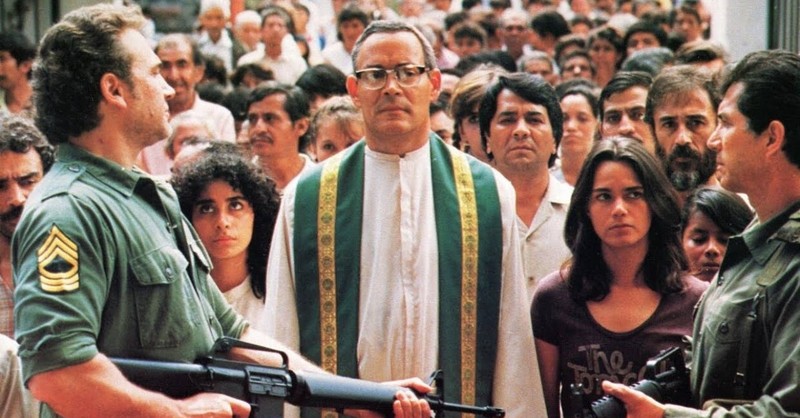
6. Romero
Rating: PG-13
By the late 1970s, El Salvador had been ruled by a military regime for over 40 years. Poverty and violence were common, elections rigged, and Christian attempts to criticize the government often ended badly. Romero tells the story of Óscar Romero becoming politically active after assassins killed one of his fellow priests in 1977. Over the next three years, a new dictatorship took over El Salvador, with more violence and oppression following. Romero gained a wide following through sermons broadcast over the radio. He uses these messages to criticize human rights violations, military abuses, and foreign authorities supporting the dictatorship. In 1980, he was assassinated while holding a service in his church.
Romero does an excellent job of capturing the story of a Christian leader living out his calling to help “the least of these,” even in violent times. It also makes a compelling case that Christians have a responsibility to talk about unjust authorities misusing their power, which may mean taking a public stance against the status quo. Romero’s stance proves tragic as he stood against evil when many Christians weren’t saying anything about South American dictatorships—he had to face Christian apathy at home and abroad. This movie provides an engaging look at living for Christ and dying in his service.
Photo Credit: Paulist Pictures
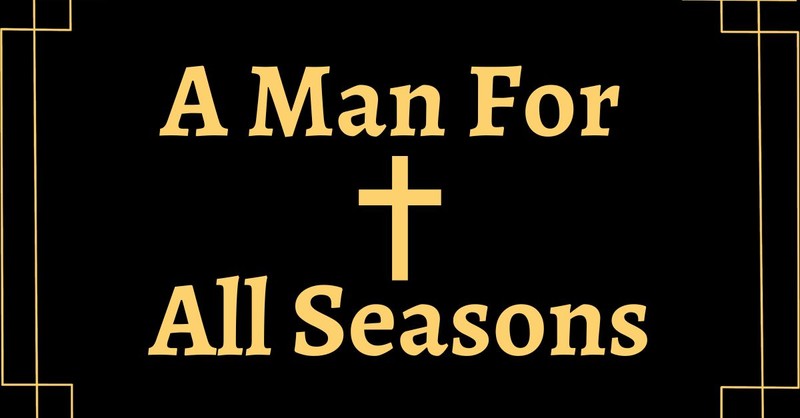
7. A Man For All Seasons
Rating: G
Thomas More isn’t mentioned much in Protestant discussions about the great martyrs. An important government official in medieval England, More got stuck between a rock and a hard place. His king, Henry VIII, wanted the Roman Catholic Church’s permission to divorce his wife and marry another woman. Most of England’s officials (including several church leaders) were willing to follow this request to keep the peace. More played a sly game where he never supported this plan but avoided making a public statement that he didn’t approve. Henry VIII took drastic measures—splitting England’s church from Rome and founding the Church of England, putting more pressure on anyone who didn’t support him. A Man for All Seasons describes how More slowly lost his influence while authorities sought a way to make him get behind the program. He was ultimately executed under false charges in 1535.
Anglican Christians may find it hard to sympathize with More, but A Man for All Seasons makes it clear this story isn’t about whether Christians can get divorced: it’s about authorities using religious language to abuse power. The movie also shows that whatever Christians believe about rebelling against unjust authorities, violence isn’t always possible. Sometimes the Braveheart option or the Bonhoeffer option just isn’t possible. The measure of a Christian may be how they handle death by a thousand cuts.
Photo Credit: poster by G. Connor Salter
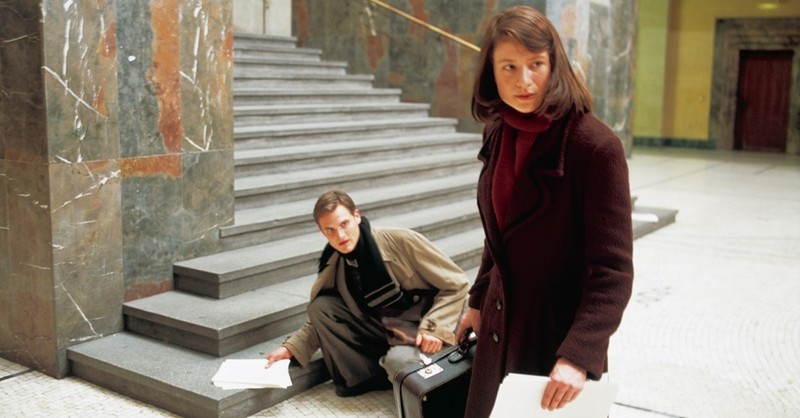
8. Sophie Scholl: The Final Days
Rating: Not Rated
Bonhoeffer’s resistance during World War II has become quite famous and presents some impressive lessons. The White Rose, a handful of German students who wrote pamphlets opposing the Holocaust, were equally impressive in their own way. Sophie Scholl’s brother Hans founded the group in 1942, and the movie opens after they’ve started writing and distributing pamphlets. The story shows Scholl’s last week—producing the final White Rose pamphlet, her arrest, then her execution. An epilogue details how the pamphlet made it out of the country, and British planes later dropped copies over Germany.
Various people have written about how Scholl’s Christian faith motivated her resistance, and this movie acknowledges how that faith drove her. Large sections of the movie follow her arguments with a Nazi official trying to get her to give up information, arguing about morality and whether there is such a thing as a God-given moral code. It may not portray that faith as explicitly as in some American Christian films, but it clearly drives her mission. It may not have the exciting stakes of other German resistance stories (no assassination plans, no international espionage plans). Still, it presents an inspiring look at smaller acts of rebellion which made a difference.
Photo Credit: Zeitgeist Films
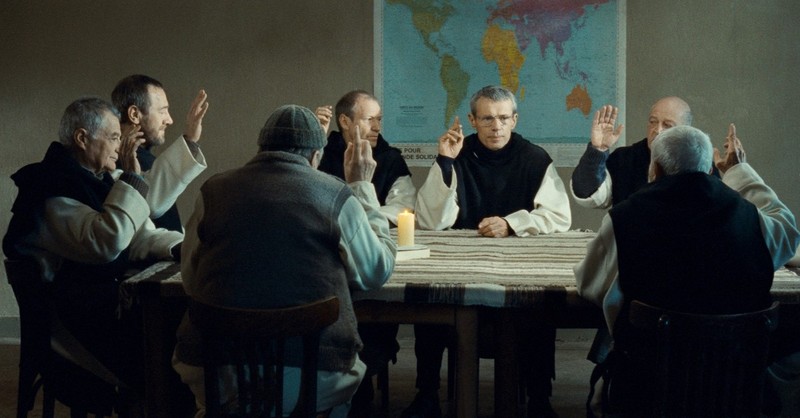
9. Of Gods and Men
Rating: PG-13
Another story about a recent martyrdom, Of Gods and Men, is based on the story of nine Trappist monks living in an Algerian monastery. The monks faced a dilemma when the Algerian Civil War started in the 1990s. Muslim extremists had entered their area, killing foreigners and Christians. They could flee, but that would mean abandoning the locals they served—providing food and medicine, especially hard to get in wartime. They could accept military help from the Algerian army, but their order’s vows discourage taking up arms. Ultimately, they decided to stay without protection and continued their ministry. In 1996, extremists kidnapped seven monks, whose bodies were found two months later.
Evangelical Christians unfamiliar with the Trappists may find some details confusing—why not accept military help in a warzone? However, one could just as easily ask why Jim Elliot and Nate Saint didn’t kill the Waodan warriors who attacked them. For centuries, Christians have debated pacifism versus self-defense, just wars versus unjust wars. Regardless of what side viewers take, the fact remains that Jesus did call Christians to live at peace as best they can, and many Christians across traditions have interpreted that as giving up the right to fight back. Of Gods and Men also considers another provocative question: how much Christians should sacrifice for the people they serve. The early church was known not just for caring for themselves but for the unwanted (orphans, widows) in the non-Christian community. If Christians are known for their love (John 13:35), does that love extend to non-Christians as well as the rest of the church? And if loving service to non-Christians leads to death… what should Christians do? An intelligent exploration of what it means to die in the Lord’s service.
Photo Credit: Wild Bunch
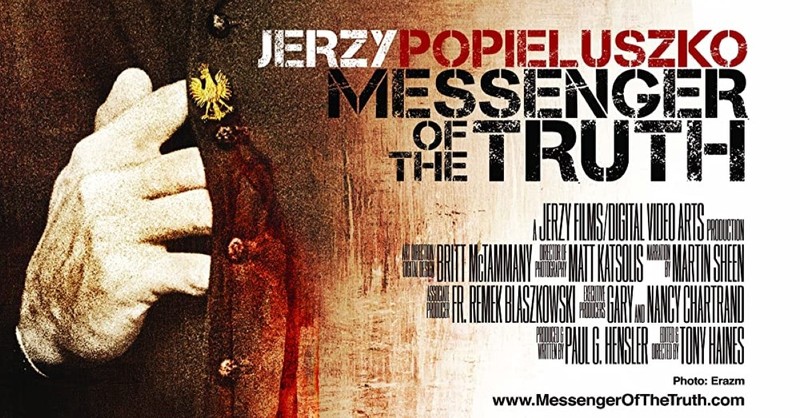
10. Messenger of the Truth
Rating: Not Rated
During its nearly 75-year reign, the Soviet Union persecuted numerous Christians—sometimes in subtle ways and other times with open threats and death. While some stories about Christians who resisted the regime have become famous, like pastor Richard Wurmbrand, others are far less well-known. Messenger of the Truth looks at a Christian leader who died in the last decade of Soviet control.
Jerzy Popieluszko was a Roman Catholic priest who began criticizing Soviet leaders early on in his sermons. As he became involved in Solidarity, a trade union that challenged communist control of commerce, authorities saw him as an even greater threat. Secret police killed Popieluszko on 19 October 1984. Messenger of the Truth is one of several movies looking at Popieluszko’s story (earlier fictionalized in To Kill A Priest). It gives the most recent and factual look, including interviews with some of his contemporaries, who describe where his sacrifice fits in the larger story of Poland’s liberation from communism.
Photo Credit: Messenger of the Truth LLC

Honorary Selection: Becket
Rating: PG-13
Like A Man for All Seasons, this is a historical drama about the king of England clashing with an important leader. It spends more time being a historical drama than a meditation on faith, but does present an interesting look at being a Christian in complex times. Henry II is the grandson of William the Conqueror, whose Normans subjugated the Saxons. Thomas Becket is his friend, a Saxon living in Norman-ruled England who takes insults and serves whoever will help him thrive. Becket seems like the perfect political tool, so Henry leaps at the chance to make him Archbishop of Canterbury. Perhaps to both their surprise, Becket yearns to serve God alone. His choice not only costs him a friendship but his life.
Becket makes an interesting movie about martyrdom because it depicts a Christian who doesn’t feel good enough to serve God, much less die for him. He struggles to understand God. In early scenes, he seems either amoral or expert at being all things to all people. His spiritual trials increase when he becomes a religious authority. When he stands for God, he has to fight not against faceless authorities, but against a friend. All these factors make Becket a story about how serving God may bring heartbreaking sacrifices.
Photo Credit: Fan poster by G. Connor Salter
Further Reading:
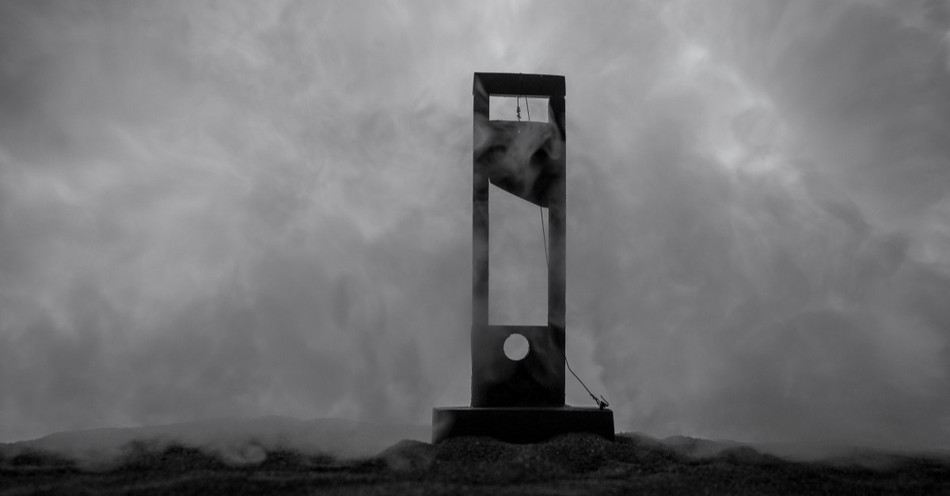


.jpg)


.jpg)